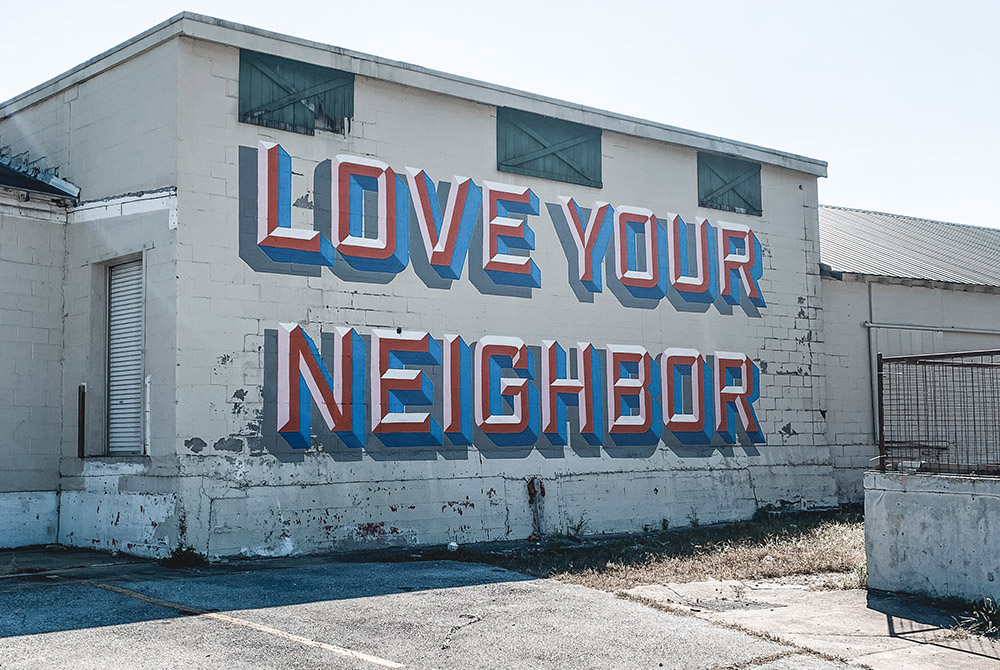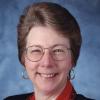
(Unsplash/Derick McKinney)
We human beings are complex creatures, and we live in a complex global world. Empires and nation-states compete with one another as diverse economies, cultures, races, genders, ethnicities, identities, religious beliefs, traditions, and practices, political views and parties, forms of governments, classes, ages, social locations, and orientations among many other expressions create and shape the rich fabric of human life.
Amid such extraordinary diversity existing since the beginning of time, four questions emerge from this Sunday's readings: Who or what is the divine? What is love? Who is our neighbor? How are we to understand "priesthood" apart from its association with holy orders and ordination within the institutional Roman Catholic Church? These timeless questions invite ongoing responses in the context of our complex world.
The first reading from Deuteronomy contains two passages that are central to the Jewish liturgy, namely the Shema (Deuteronomy 6:4) and the V'ahavta (Deuteronomy 6:4-6, 7-9). The double address-command "hear" (the Shema) calls the Israelites to remember God's essence and their relationship with the one God. Translations of the phrase "The Lord is our God, the Lord alone!" varies.
One possibility appearing in several Bibles is: "The Lord our God, the Lord is one." This translation reflects the principle of monotheism ("one") which became the backbone of Judaism, Christianity and Islam. Early Israelite monotheism seems to have begun as a localized tribal religion in which each tribe worshiped its own patron deity. When the state of Israel became centralized under David and Solomon, certain advocates who wanted "one God" supposedly emerged, and they elevated Israel's God as the supreme god above all other deities which included El, Asherah and Baal. The intersection of a national religion with politics and the push for power and greater centralization provided the monarchic state with the means to exert ever greater authority over the people, more so than what the ruling monarchy could do alone. Hence, the intersection of religion and politics becomes a force for colonizing people into submission and compliance in biblical times and even today in an increasingly fundamentalist world.
A second possible translation is what appears in today's reading. This translation also appears in the Jewish Women's Bible Commentary. This version makes a claim about God's unique relationship to Israel and does not deny the existence of other divine beings. This understanding is what many scholars have concluded is a pre-monotheistic Israelite belief called monolatry. Monolatry advocates allegiance to one god while recognizing the existence of other deities. When we understand the pre-monotheistic Israelite belief, then the door opens today for understanding the divine in the context of other religions and their expressions of the sacred presence.
Advertisement
"Who or what is God" is the central question for this 21st century world. How we understand the divine goes hand in hand with how we live our lives together as a human community amid burgeoning diversity. The decolonization of monotheism can pave the way for a deeper understanding of the divine in the context of interreligious dialogue which includes indigenous and secular perspectives. The divine cannot be defined, but the divine can be encountered in limitless and diverse ways that can allow us to fall in love with all that exists.
The section that begins "you shall love" (the V'ahavta) describes how people are to embody and live out the teachings of Torah and pass them on to future generations. Keeping Torah entails establishing right relationship with the divine and with all that exists. Keeping Torah always has a communal dimension; it is never about personal piety or personal perfection.
The Gospel reading focuses on love: love of God, love of self and love of neighbor. But what is love? And who is our neighbor? Love is more than feelings and good deeds. Love involves justice, ethical praxis and practice, willing the good for the other, and taking concrete steps to put words into actions. Love calls us to work toward self-knowledge, self-reflection, healing and wholeness in our lives for the sake of holistic, nonviolent and respectful engagement with life.
Love calls us to work toward self-knowledge, self-reflection, healing and wholeness in our lives for the sake of holistic, nonviolent and respectful engagement with life.
Today, "neighbor" can no longer be understood only anthropocentrically. Neighbor includes nonhuman communities, especially the Earth itself, wherein resides the presence of the divine waiting to be encountered. Finally, the Letter to the Hebrews speaks of the priesthood of Jesus. The reference is not to the priestly tribe of Levi nor to an ordained clerical priesthood. For some Christian denominations, Jesus, priesthood and ordination have become inseparable. The priesthood of Christ implies being anointed for ministry by the Spirit of God.
Now just think about all creation being anointed into the priesthood of Christ. Not only are humans capable of ministering but also the rest of creation is as well. The challenge for humans is to re-envision ministry so as to be open to being ministered to by our nonhuman neighbors, for in them, too, the Spirit of the divine resides.








